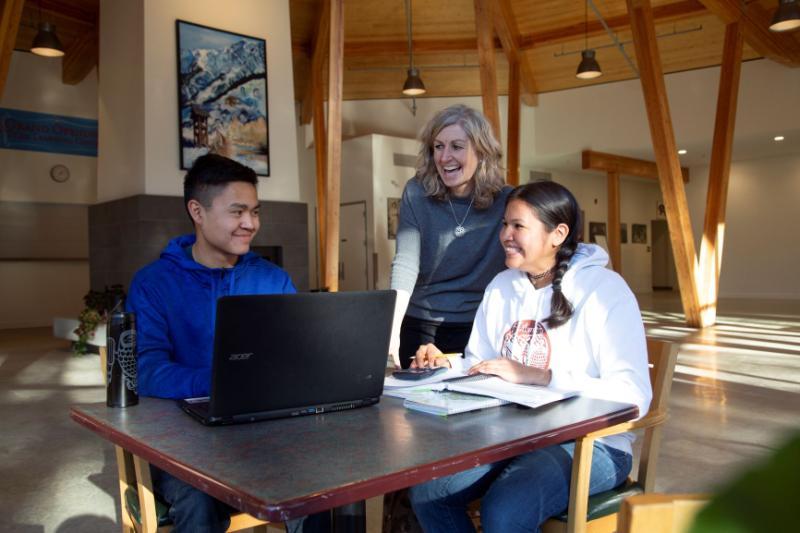Community Adult Literacy programs that support unseen learners
Making education possible for those who have been excluded

Some Capilano University faculty and staff are quietly making a difference to people who have been missed by the conventional pathways to education. The Provincial Government recently announced new funding for adult literacy programs, including the 11 CapU Community Adult Literacy projects run throughout British Columbia.
“We are excited to share that for 2021–2022 we have received $330,000 in government funding to support these tuition-free programs,” said Amanda Walker, literacy outreach coordinator, department of Community Development & Outreach (CDO) at Capilano University. “From providing digital literacy programming to people on Vancouver's Downtown Eastside, conversational English support for newcomers in Whistler, developing inclusive programming that honours Indigenous ways of knowing, to operating programs in remote First Nations communities—the work by our CapU team is as unique as the communities we serve.”
This funding comes as part of a $2.9-million funding commitment for the province-wide Community Adult Literacy Program, which includes a one-time top-up investment for 2021–2022. This support will fund 97 programs, delivered by 66 organizations in 128 communities throughout the province.
CapU CDO students are often socially excluded in many parts of our community, explains Walker.
Learners may be newcomers to Canada, low-income residents, parents, seniors, workers in entry-level jobs, or Indigenous people living both on-reserve and off-reserve. Many are prioritizing their education while also facing struggles with homelessness, income stability, mental health or physical disabilities.
“Our educators are creating meaningful social change through access to education” said Walker.
CapU’s adult literacy programs engage learners as partners in the learning process, build partnerships with communities to provide a continuum of learner supports, and provide learning opportunities where learners naturally gather—in the streets, in workplaces, in health centres, in community centres, and in local libraries. By focusing on basic literacy, numeracy, life skills and employment preparation, they create a ladder for vulnerable learners to pursue high school completion or other post-secondary programs.
The 11 current CDO programs serve around 200 people living in Vancouver’s Downtown Eastside, the North Shore, Sechelt, Squamish, Whistler, the Pemberton Valley, and five rural and remote Indigenous communities.
Submitted by: Communications

